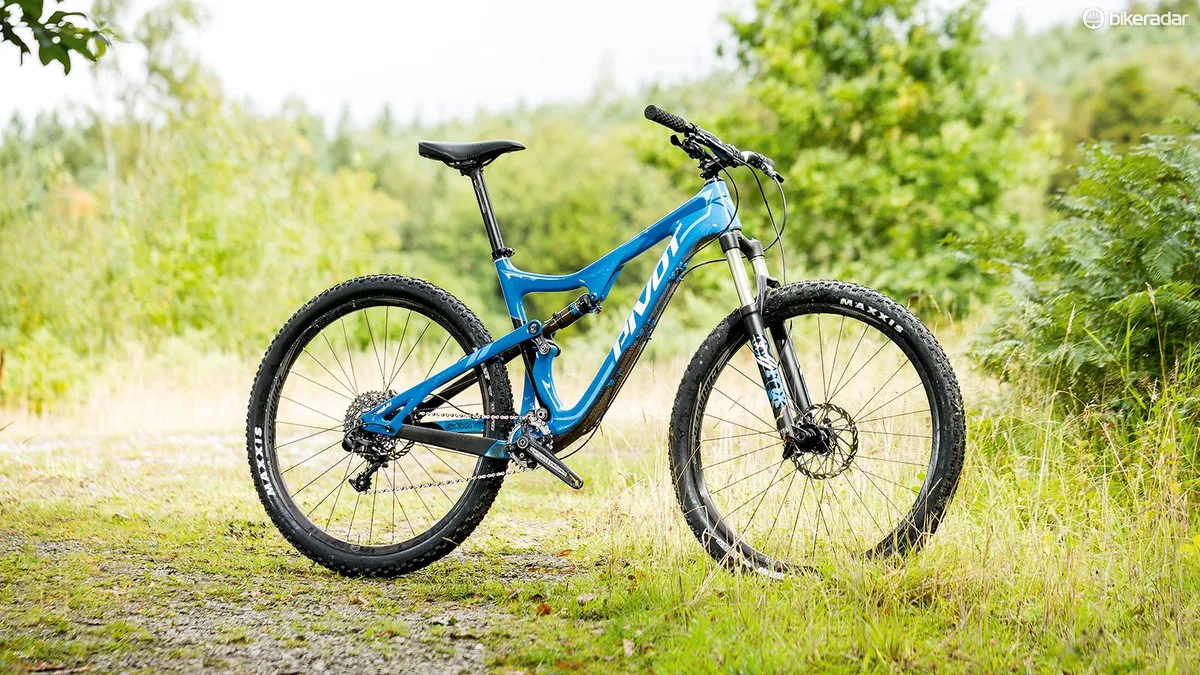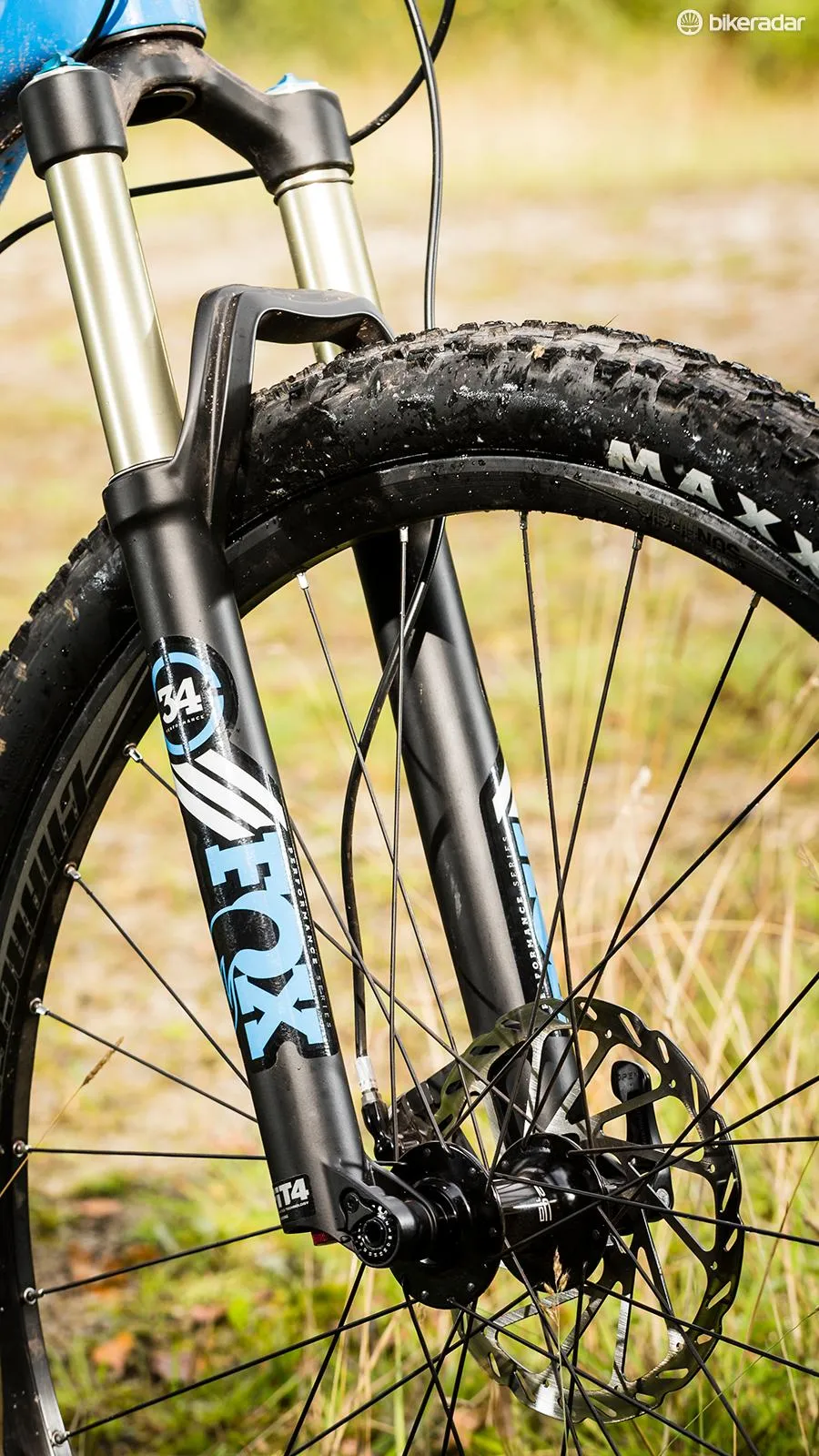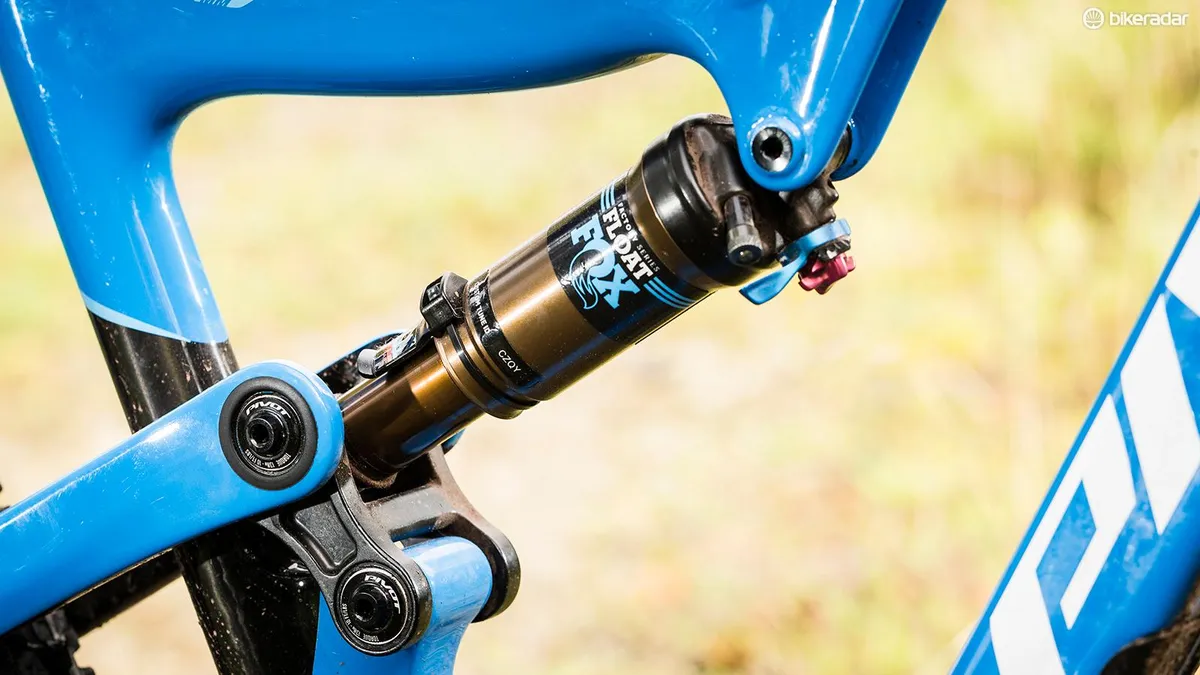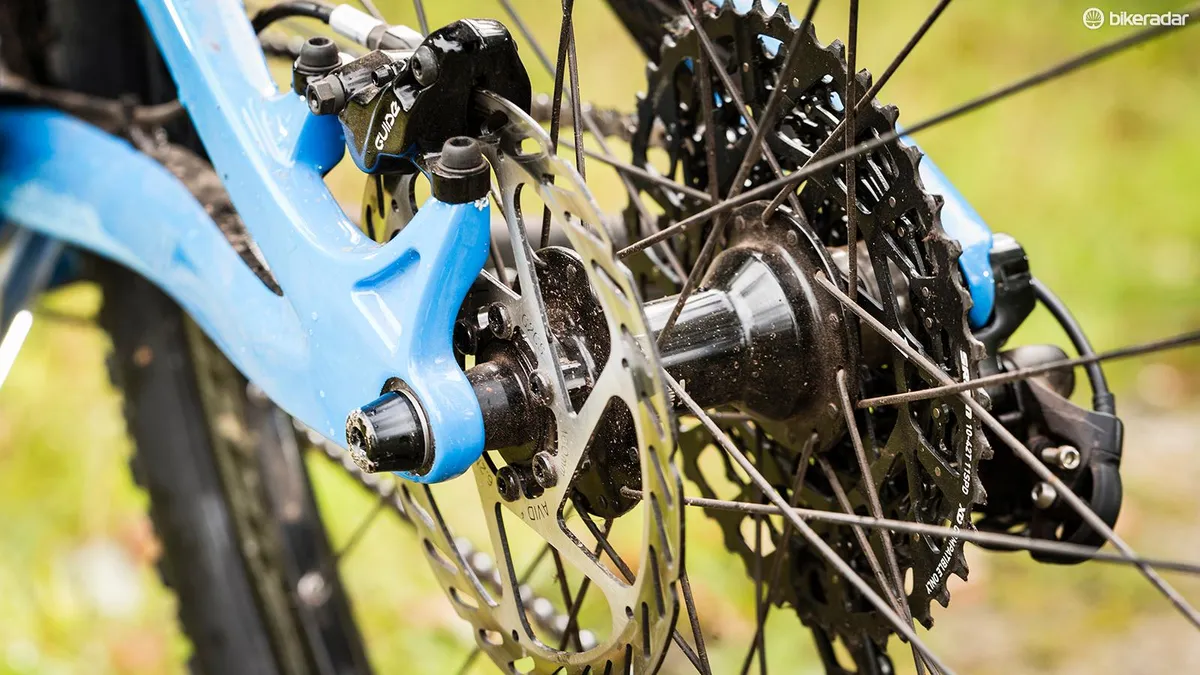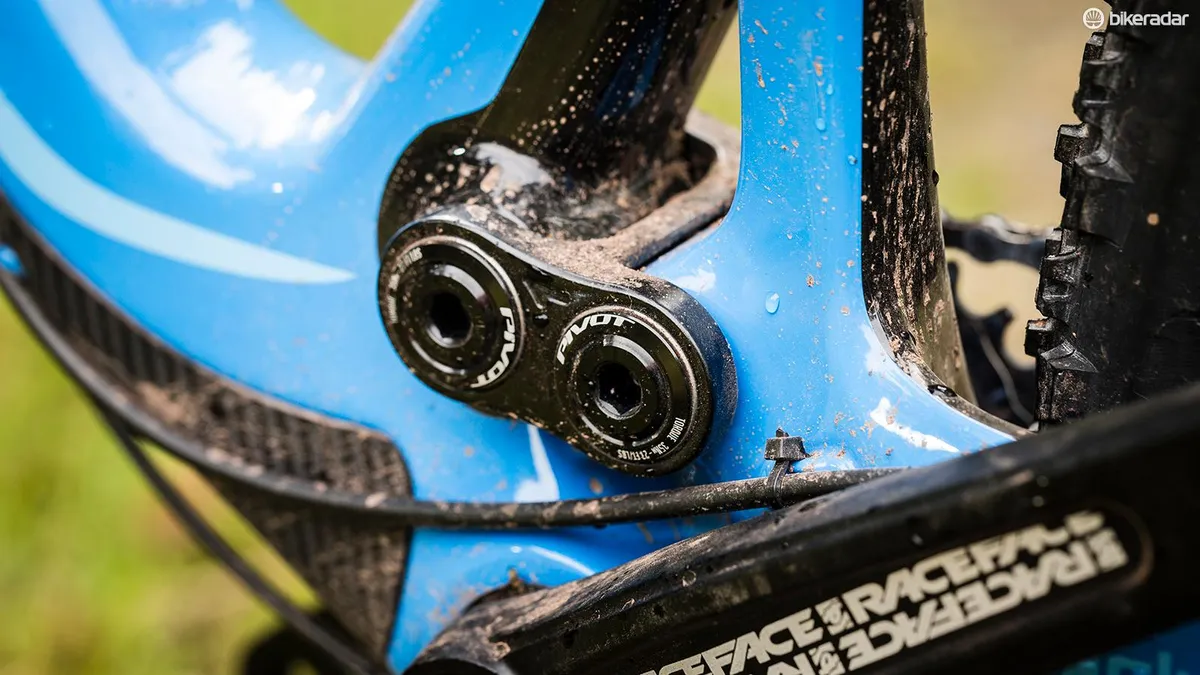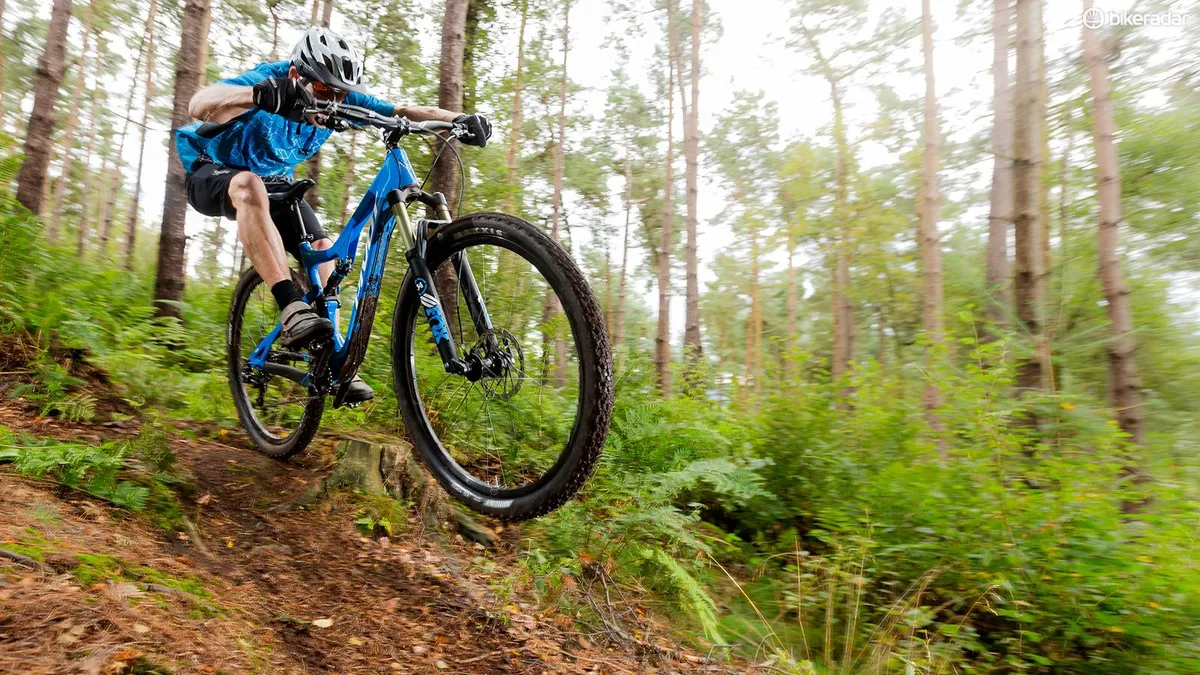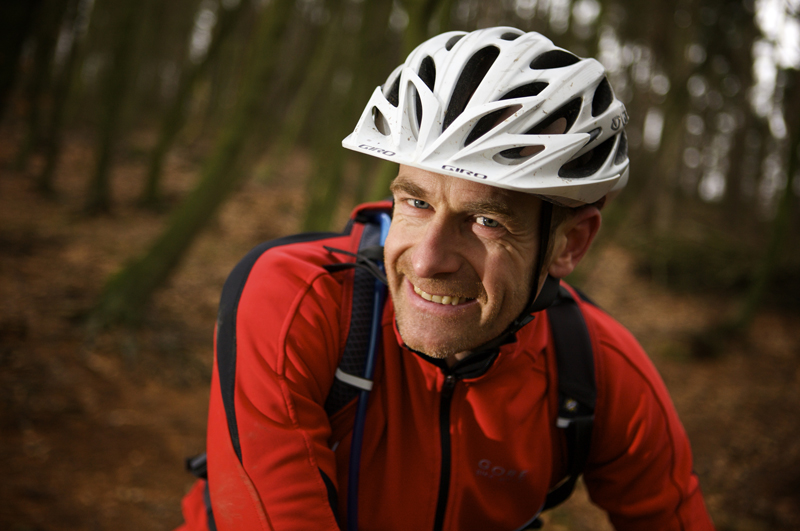The 429 Trail doesn’t look much different to the old Mach 429 at first glance. But Pivot regards it as a totally new bike.
Travel increases to 116mm via a dw-ink setup that uses a new upper link and the lower link from the Mach 6 Enduro bike. The rear end uses a wider, stiffer Boost 148mm axle and it’s fully Di2 electric shift compatible.
Related: Pivot Mach 6 Aluminum joins new Carbon version
Slacker and longer geometry (a 630mm top tube and a 67.5-degree head tube) includes a shorter seat tube, so you can go up a frame size if you want even more stretch for a super stubby stem.
Seamlessly silky
The reworked dw-ink suspension does a brilliant job of floating you over small trail chatter or significant hits without interrupting pedal rhythm or overall composure. It’s the same story in reverse too, with neither slow, staccato pedalling nor savage braking upsetting the consistent ground connection of the rear wheel.
Even with a short 184mm shock length, the excellent new Fox DPS Kashima shock is impressively measured but never mean with the amount of travel it uses. That meant most of our test riders thought they were riding a 130-140mm travel bike not a 116mm rig.
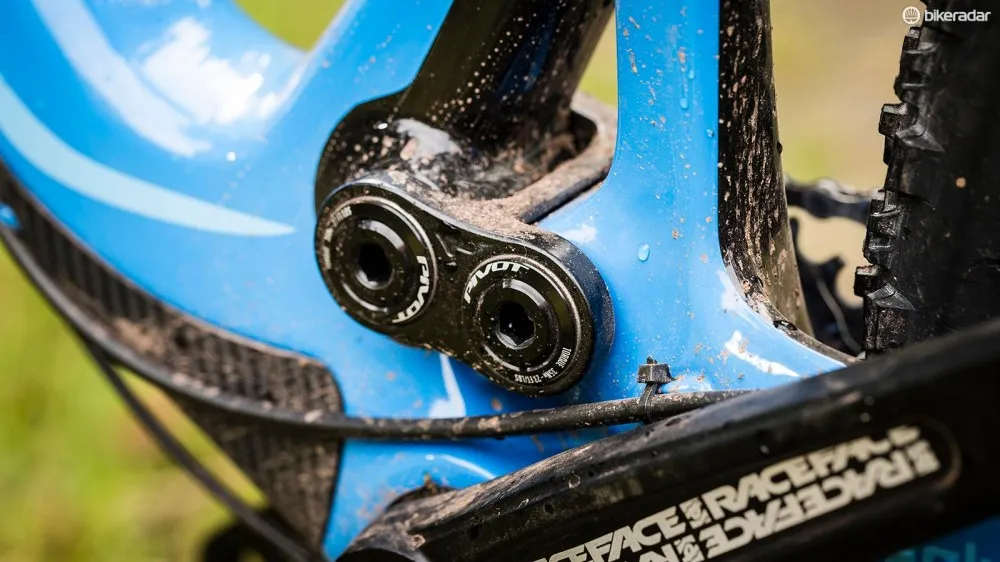
The reworked dw-link suspension does its job superbly and travel feels longer than it is
It’s helpfully tolerant of approximate setup pressures if you’re in a hurry to get on the trail or just not that skilled at shock setup. The ‘Performance’ grade Fox 34 fork never restricted overall capability either.
Add the extra smoothness and speed sustain of 29er wheels and it carries speed through chaos with remarkable calm.
Game of two halves
The 429 Trail is creamily smooth in suspension terms, but as soon as you need to work against the grain of the trail or hack it hard into a corner, the mainframe is obviously plenty stiff. The steering is confidently balanced and capable too, with well-weighted responses putting the front wheel exactly where you want without constant correction.
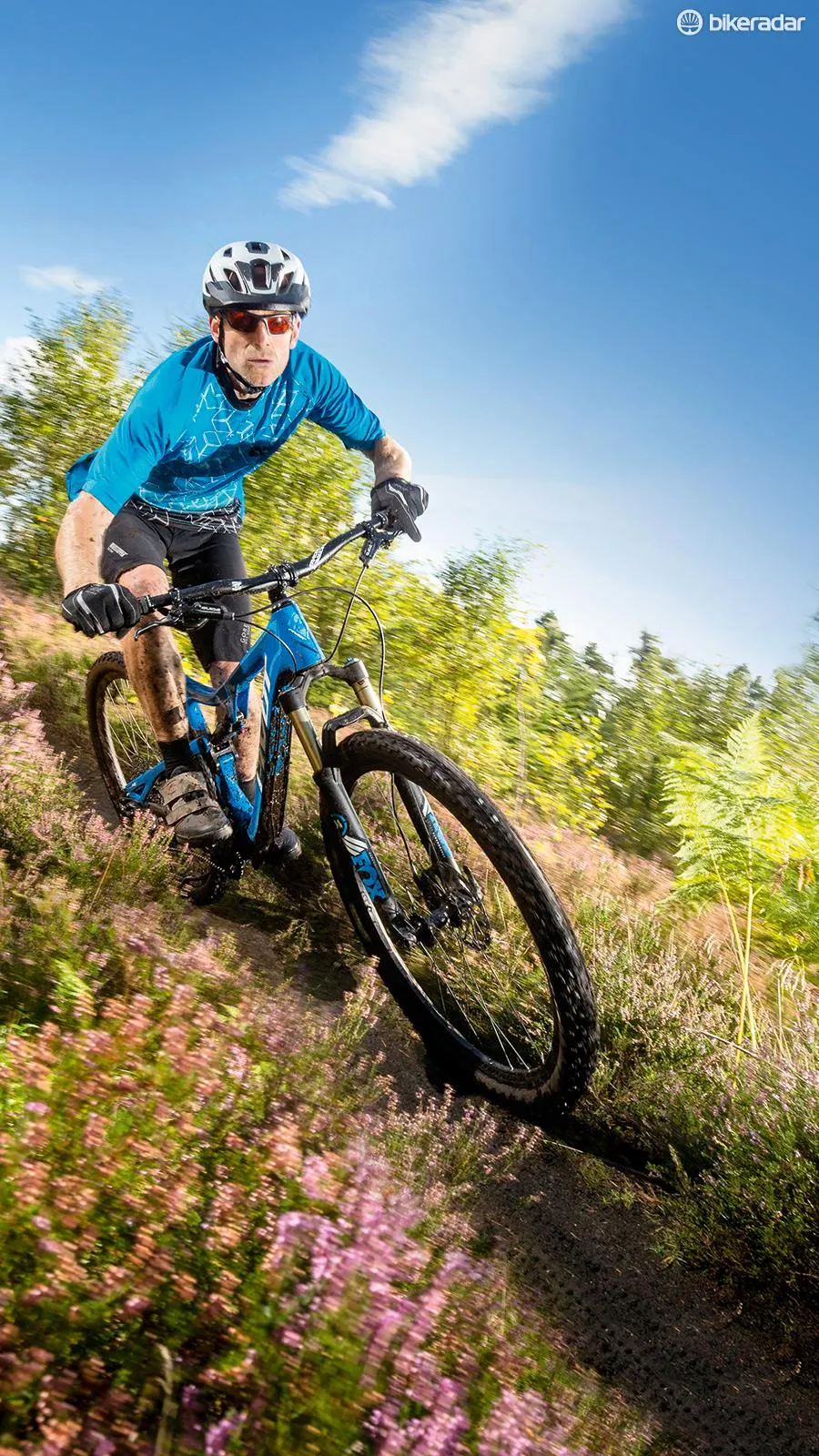
Unfortunately the long, flexible back end compromises agility and precision
Because the suspension is very neutral in terms of pedal and brake reaction, you’re literally working off a consistently level and totally predictable playing field too.
While the front end is impressively stiff, the lack of cross bracing in the long rear stays means startling amounts of wheel twist and tracking softness under cornering or out of the saddle pedalling loads. The long back end also gives it less pop-and-hop agility and while it will manual and move about if you need it to, it’s not a natural wheel waver.
It’s an outrageously smooth, capably confident and futureproofed cruiser, but the surprisingly flexy back end of the Pivot means it lacks ultimate punch and precision when things get really rowdy.

